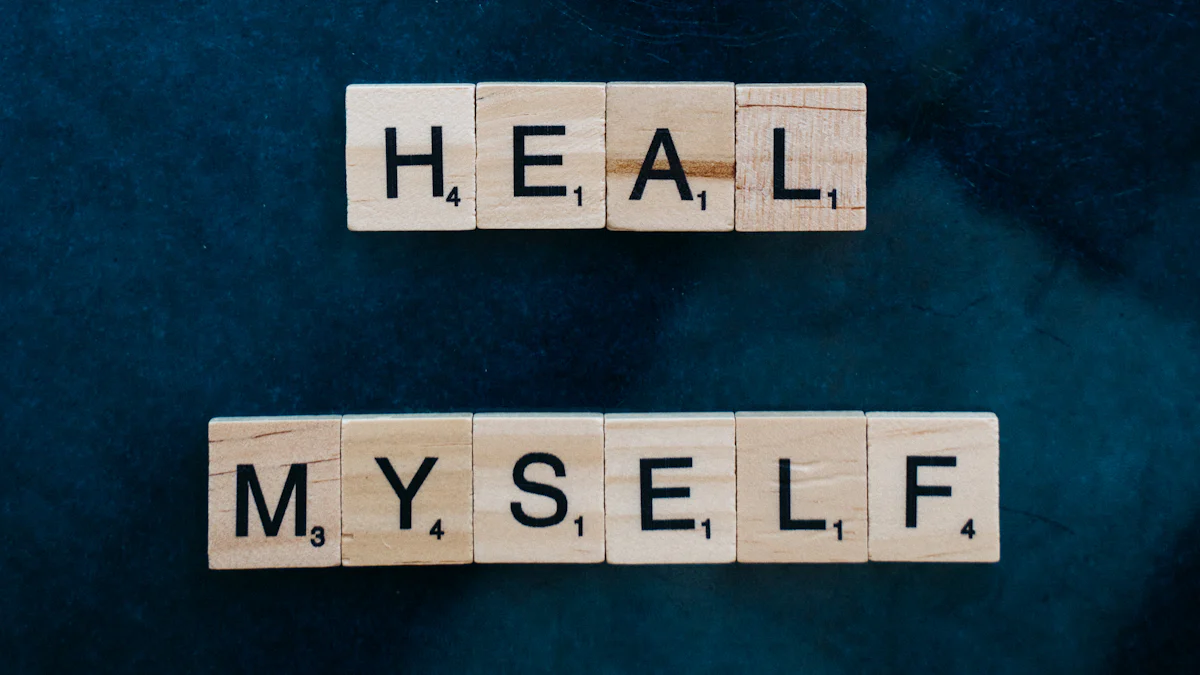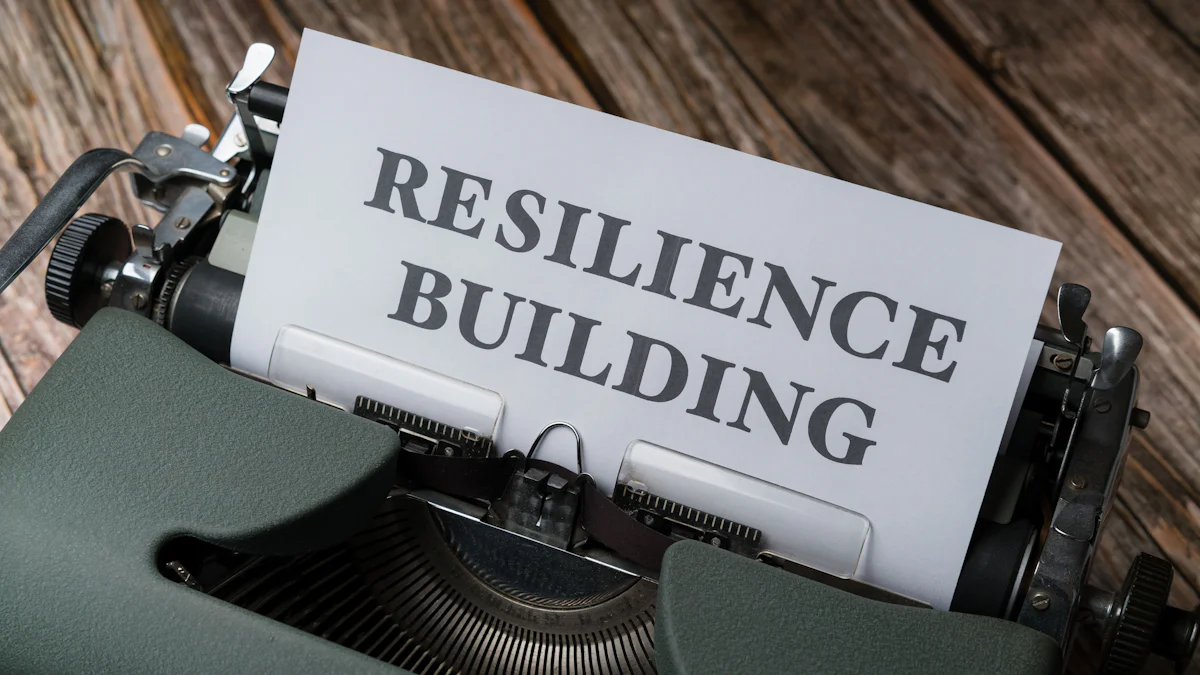Why You Need a Divorce Guide for Emotional Resilience

Divorce can feel like an emotional storm, leaving you drained and uncertain about the future. It challenges your sense of self and disrupts your daily life. Building emotional resilience during this time is crucial. It helps you recover faster, maintain healthier relationships, and grow stronger through adversity. A divorce guide can provide the structure and support you need to navigate this journey. It equips you with tools for emotional recovery, empowering you to face challenges with clarity and confidence.
Understanding the Emotional Challenges of Divorce

Why Divorce is Emotionally Draining
The loss of a relationship and its impact on self-identity
Divorce often feels like losing a part of yourself. When you’ve spent years identifying as part of a couple, it’s easy to lose sight of who you are as an individual. Decisions you once made together may have shaped your life, leaving you unsure of your own preferences. This shift can feel overwhelming, as the emotional aftermath of losing that coupled identity complicates your sense of self. You may find yourself grieving not just the relationship but also the dreams and plans you built together.
Coping with legal, financial, and lifestyle upheavals
Divorce brings significant changes to your daily life. Adjusting to new living arrangements, whether staying in the marital home or moving elsewhere, can feel destabilizing. Your social life may shift as friendships and social circles change. On top of this, managing legal and financial matters adds another layer of stress. Seeking professionals to protect your rights and manage assets becomes essential. Establishing new routines can help you regain balance, but the process takes time and patience.
Divorce is not just an emotional journey; it’s a logistical one. Balancing these changes while supporting your kids or maintaining a co-parenting relationship can feel like an uphill battle.
The Role of Emotional Resilience in Divorce Recovery
Adapting to change and managing emotional stress
Emotional resilience is your greatest ally during divorce recovery. It helps you manage intense feelings like sadness, fear, and anger. Resilience allows you to maintain a clear perspective, even when emotions run high. This clarity helps you make rational decisions, ensuring you focus on long-term well-being rather than short-term relief. By developing coping strategies, you can navigate the challenges of divorce with strength and confidence.
Building a foundation for long-term emotional well-being
Resilience isn’t just about surviving the divorce process; it’s about thriving afterward. It equips you to cope with stress and promotes personal growth. Research shows that individuals with higher resilience experience fewer long-term effects like depression or anxiety. By fostering resilience, you create a foundation for emotional well-being that supports healthier relationships and quicker recovery. This strength will guide you as you rebuild your life and embrace new opportunities.
How a Divorce Guide Facilitates Emotional Recovery

Bringing Structure to the Divorce Process
Simplifying complex steps into manageable actions
Divorce often feels like an endless maze of decisions and paperwork. A divorce guide helps you break down this overwhelming process into smaller, manageable steps. It provides clear instructions for tackling legal, financial, and emotional challenges. By simplifying these complexities, you can focus on one task at a time, reducing stress and confusion. This structured approach empowers you to regain control and move forward with confidence.
Reducing feelings of overwhelm with clear guidance
Uncertainty can amplify your emotions during divorce. A divorce guide offers clarity by outlining what to expect at each stage. This guidance helps you prepare for challenges and avoid surprises. When you know what lies ahead, you feel less overwhelmed and more equipped to handle the journey. The guide becomes a steady companion, offering reassurance and support when you need it most.
Providing Emotional Support and Encouragement
Validating emotions like grief, anger, and fear
Divorce stirs up a whirlwind of emotions. You might feel grief over the loss of your relationship or anger about unresolved conflicts. A divorce guide acknowledges these feelings and reminds you that they are a natural part of the recovery process. By validating your emotions, it helps you process them in a healthy way, paving the path toward healing.
Promoting self-care and self-compassion practices
Taking care of yourself is essential during divorce recovery. A divorce guide encourages self-care and self-awareness by suggesting activities that nurture your well-being. Regular exercise, a balanced diet, and adequate sleep can reduce stress and improve your mood. Engaging in hobbies or meditation can also help you find moments of peace. These practices not only strengthen your emotional resilience but also enhance your overall recovery.
Offering Practical Tools for Healing
Exercises to rebuild confidence and self-esteem
Divorce can shake your sense of self-worth. A divorce guide includes exercises designed to rebuild your confidence and self-esteem. Physical activities like yoga or walking can improve your mood and body image, boosting your self-confidence. These exercises remind you of your strength and capability, helping you feel empowered as you navigate this new chapter.
Strategies for effective communication and conflict resolution
Navigating post-divorce relationships, especially with co-parents, requires effective communication. A divorce guide provides strategies to help you express yourself clearly and resolve conflicts calmly. These tools foster healthier interactions, reducing stress and promoting cooperation. By mastering these skills, you can create a more peaceful environment for yourself and your loved ones.
A divorce guide is more than a resource; it’s a lifeline. It offers structure, support, and tools to help you heal emotionally and rebuild your life with resilience.
The Long-Term Benefits of Using a Divorce Guide

Achieving Emotional Clarity and Closure
Gaining a deeper understanding of the divorce experience
Understanding your divorce experience is key to emotional clarity. Reflecting on the journey helps you process emotions and uncover valuable insights. Therapy or journaling can guide you through this process, improving decision-making and communication. Self-care strategies, like meditation or exercise, foster personal growth and resilience. Some even celebrate the end of their marriage with a divorce party, marking closure and empowering themselves to move forward.
Seeking professional help and building a support network can also provide the clarity you need to heal. These steps allow you to focus on long-term well-being rather than short-term relief.
Rebuilding a stronger sense of self and independence
Rebuilding your identity after divorce is a transformative step. It involves redefining who you are outside of the relationship. Engaging in fulfilling activities, like hobbies or volunteering, shifts your focus inward. This process strengthens your confidence and resilience, essential for emotional recovery. Reconnecting with your values and embracing your true self promotes self-discovery. Recognizing your worth helps you rebuild self-esteem and create a foundation for a brighter future.
Fostering Personal Growth and Healthy Relationships
Learning from past experiences to create healthier patterns
Your past relationships hold lessons that can shape your future. Positive experiences teach you about trust, communication, and respect. Negative ones highlight areas for growth, like addressing emotional baggage or insecurities. Reflecting on these experiences builds self-awareness, helping you set boundaries and cultivate empathy. These skills foster healthier relationships, ensuring you approach future connections with understanding and confidence.
Developing resilience for future challenges
Resilience developed during divorce prepares you for life’s hurdles. It improves mental health, reducing anxiety and depression. You’ll gain better problem-solving skills, enabling you to handle stress with a clear mind. Resilience also enhances personal growth, turning adversity into an opportunity for self-improvement. It strengthens relationships with loved ones by helping you manage emotions effectively. Most importantly, it accelerates recovery, allowing you to embrace new opportunities with optimism.
Creating a Vision for Life After Divorce
Setting meaningful goals for the future
Setting goals gives you direction and purpose. Start by reflecting on who you want to become. Create a list of personal and professional goals, ensuring they are specific and achievable. Break them into smaller steps to make progress manageable. Regularly evaluate and adapt your goals as needed. Whether it’s spending quality time with your children or pursuing a new career, these goals will guide you toward a fulfilling future.
Embracing opportunities for growth and happiness
Divorce marks the beginning of a new chapter. It’s a chance to rediscover yourself and embrace new adventures. Many people report feeling happier and more confident within a few years of their divorce. Some find love again, while others focus on personal growth. This period of self-reflection allows you to evaluate your values and desires, leading to a clearer sense of identity. By welcoming these opportunities, you can create a life filled with joy and purpose.
Post-divorce is not an end but a fresh start. It’s your chance to build a life that aligns with your dreams and aspirations.
Divorce is one of life’s most challenging transitions, but you have the power to overcome it. With the right tools, emotional recovery becomes achievable. A divorce guide offers you structure and clarity, helping you navigate each step with confidence. It encourages self-care, mindfulness, and building a strong support network. These elements foster resilience, allowing you to heal and grow. By using a divorce guide, you can embrace this new chapter with optimism and create a fulfilling future.
Remember, every ending is a chance for a new beginning. You are stronger than you think, and brighter days lie ahead.
FAQ

What is the purpose of a divorce guide?
A divorce guide helps you navigate the emotional, legal, and practical challenges of divorce. It provides structure, support, and actionable steps to help you recover emotionally and rebuild your life with confidence.
How can a divorce guide improve emotional resilience?
It equips you with tools to manage stress, process emotions, and rebuild self-esteem. By following its guidance, you can develop coping strategies that strengthen your emotional resilience and prepare you for future challenges.
Is a divorce guide suitable for everyone?
Yes, whether you’re contemplating divorce, in the middle of it, or recovering afterward, a divorce guide offers valuable insights and strategies tailored to your situation. It’s designed to meet you where you are in your journey.
Can a divorce guide help with co-parenting?
Absolutely. Many guides include strategies for effective communication and conflict resolution, which are essential for co-parenting. These tools help you create a healthier environment for your children and foster cooperation with your co-parent.
How do I choose the right divorce guide?
Look for a guide that addresses both emotional and practical aspects of divorce. It should offer clear, actionable advice and focus on fostering resilience and personal growth. Reviews and recommendations can also help you make an informed choice.
See Also
Top 10 Strategies for Managing Divorce Stress in 2025
A Complete Guide to Military Divorce in Texas
Navigating the Texas Divorce Process and Its Challenges
Subscribe to get the updates!
Sign up now to receive timely blog updates.
I accept the email subscription terms.

